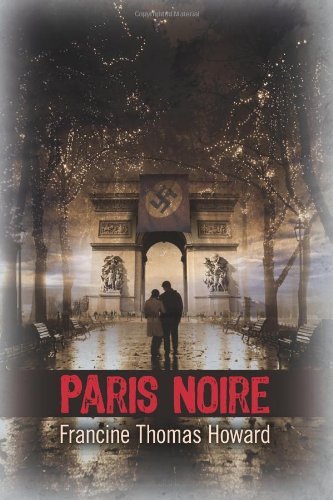Paris Noire
Americans sometimes forget that racism also exists in other countries – even France, better known for welcoming African-American artists in the 1920s. In Paris Noire, author Francine Thomas Howard makes vivid the reach of racism in Paris at the end of World War II through a family’s competing love stories.
Marie-Therese Brillard, daughter of a white French father and an African-Caribbean mother, fled her native Martinique sixteen years earlier, after her white French husband broke her heart. She’s raised her two children, Christophe and Collette, in Paris with the understanding that when they marry it will be to someone of color. Neither sibling agrees with that plan. For Christophe, who turns his back on his childhood sweetheart and falls in love with the wife of a deadly French resistance fighter, his choice may cost him his life. The book’s description makes it sound as though Collette’s story is also woven through, but we never see her with her beloved; we simply know he’s white, that Collette is with him, and that Marie-Therese impotently disapproves.
The danger to Christophe is balanced with delicious fun as the upright and (in her own mind) elderly Marie-Therese tumbles into love with a handsome African-American officer – something Christophe can’t fathom. His mother? With a man? Marie-Therese is a unique heroine, an insecure, 50-year-old, devout Catholic in need of a better bra. She is absolutely certain that whites can’t be trusted in matters of the heart and she doesn’t hesitate to lie to Christophe in order to save him. Paris Noire is a winning historical romance that feels true to the mores of its time. Its slow start gathers force for a powerful and poignant ending.










